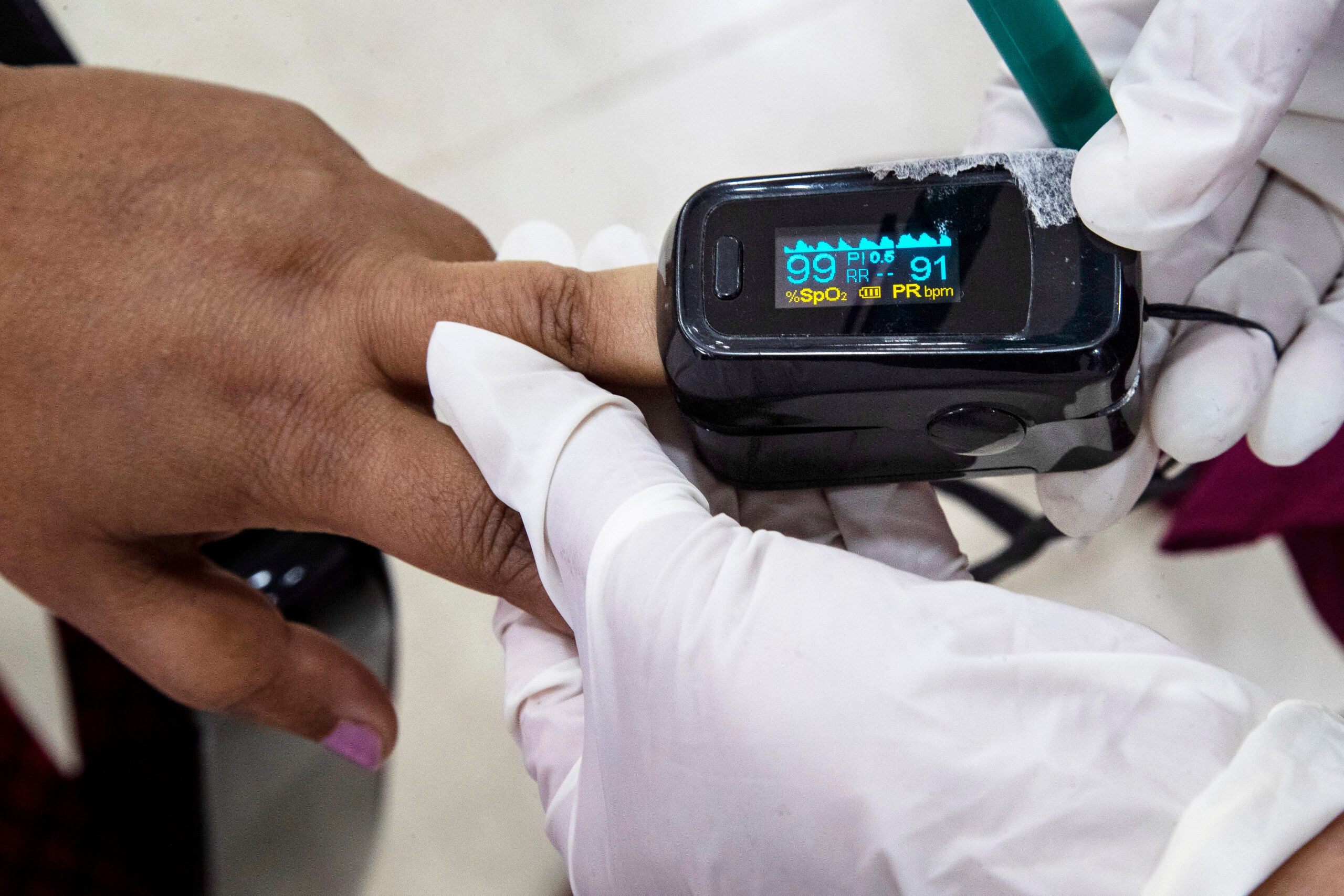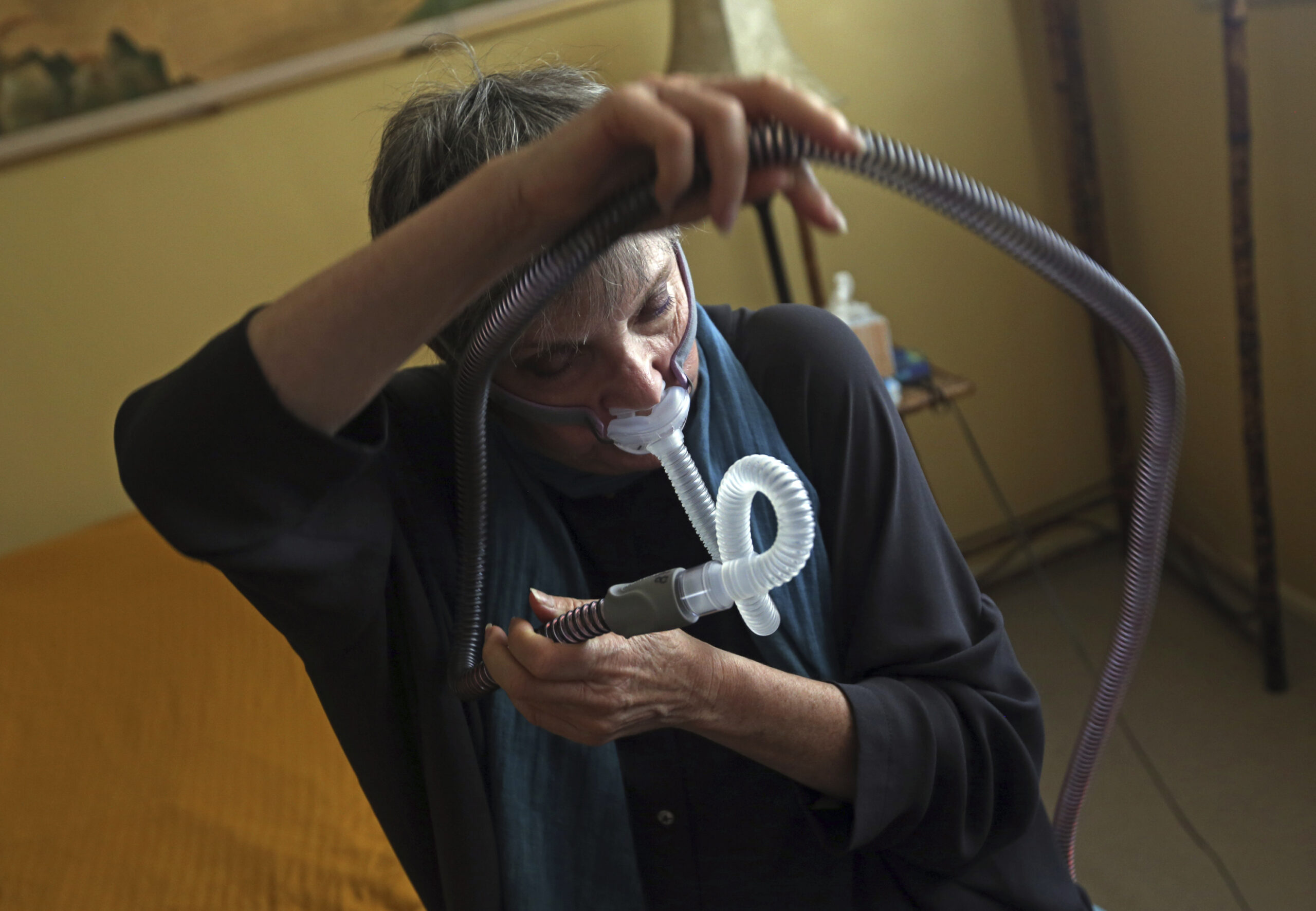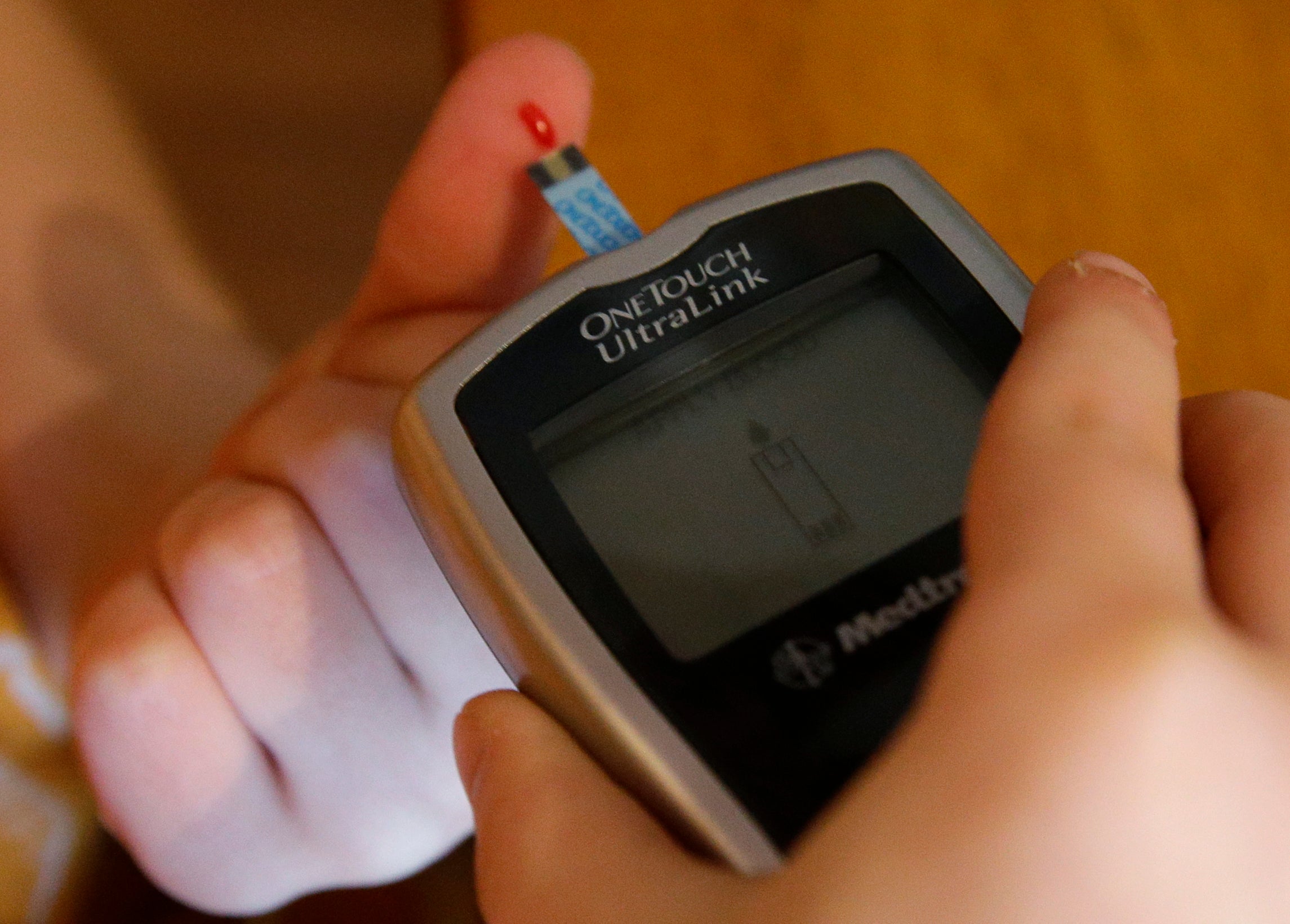After starting “Body Week” on Wisconsin Public Radio’s “The Morning Show” with programs about the brain and the heart, Wednesday’s show examined the lungs and concerns around childhood and adult respiratory diseases.
Two Wisconsin doctors shared advice for managing asthma, sleep apnea and other common problems that affect the lungs.
Here are three takeaways from the program:
News with a little more humanity
WPR’s “Wisconsin Today” newsletter keeps you connected to the state you love without feeling overwhelmed. No paywall. No agenda. No corporate filter.
Sleep apnea often goes undiagnosed
Millions of people unknowingly have sleep apnea, said Dr. William Ehlenbach, associate medical director for pulmonology and sleep medicine at SSM Health Dean Medical Group. The sleep disorder can cause problems if left untreated.
Symptoms of sleep apnea include daytime sleepiness and not feeling refreshed after waking up in the morning. Some people with sleep apnea fall asleep even when they don’t mean to, which can be dangerous for drivers.
Bed partners should look out for loud snoring and pauses in breathing. Ehlenbach estimated half of people who snore have sleep apnea.
“Everyone with obstructive sleep apnea snores, but not everyone who snores has obstructive sleep apnea,” he said.
While studies in a lab were previously the only way to reliably diagnose sleep apnea, Ehlenbach said technology has improved enough over the last 15 years to allow for at-home studies — although lab studies may be more comprehensive.
“This is one exciting area where I think the technology is improving,” he said. “It reduces the barrier to people getting evaluated for sleep apnea, which is so important.”
Once diagnosed, continuous positive airway pressure, or CPAP, machines are the most effective treatment for this disorder, Ehlenbach said. The machines have become smaller and quieter. Masks have become more comfortable, too.
“For most people, sleep apnea is a chronic condition (that) will be with them for the rest of their life,” he said.

Word of caution for pulse oximeters
Over-the-counter pulse oximeters — devices to measure oxygen levels of the blood — gained more popularity during the COVID-19 pandemic. But Dr. Louella Amos, a pulmonologist at the Children’s Hospital of Wisconsin, cautioned about reading results, particularly for children.
Kids have small fingers, which might affect the accuracy of the reading, Amos said. Fingers also need to be warm and there needs to be good perfusion, or how blood moves through the vessels, to get a reliable result, she said.
“If you’re worried about the accuracy of the number, I have parents maybe bring their oximeter, and we compare it to our medical-grade pulse oximetry in the clinic,” Amos said.
When costs run high
More than 25 million Americans suffer from asthma, according to the Centers for Disease Control and Prevention. One of the biggest problems for treatment is the cost of inhaled medications, Ehlenbach said.
Inhalers can be the preferred form of treatment because inhaled steroids result in far fewer side effects than the medication in pill form, he said. Ehlenbach advised patients worried about the costs of inhaler medication to look for generic brands.
“The cost of inhalers is really a very significant problem,” he said. “That’s a financial toxicity that our patients bear.”
“Body Week” is a week-long series on Wisconsin Public Radio’s “The Morning Show.” An hour of the program is dedicated each day to one part or system of the body. Wednesday’s show featured the lungs. Next, we explore the gastrointestinal system. Listen to the show weekdays at 8 a.m. on The Ideas Network. Submit your questions about the body to ideas@wpr.org.
Wisconsin Public Radio, © Copyright 2026, Board of Regents of the University of Wisconsin System and Wisconsin Educational Communications Board.







